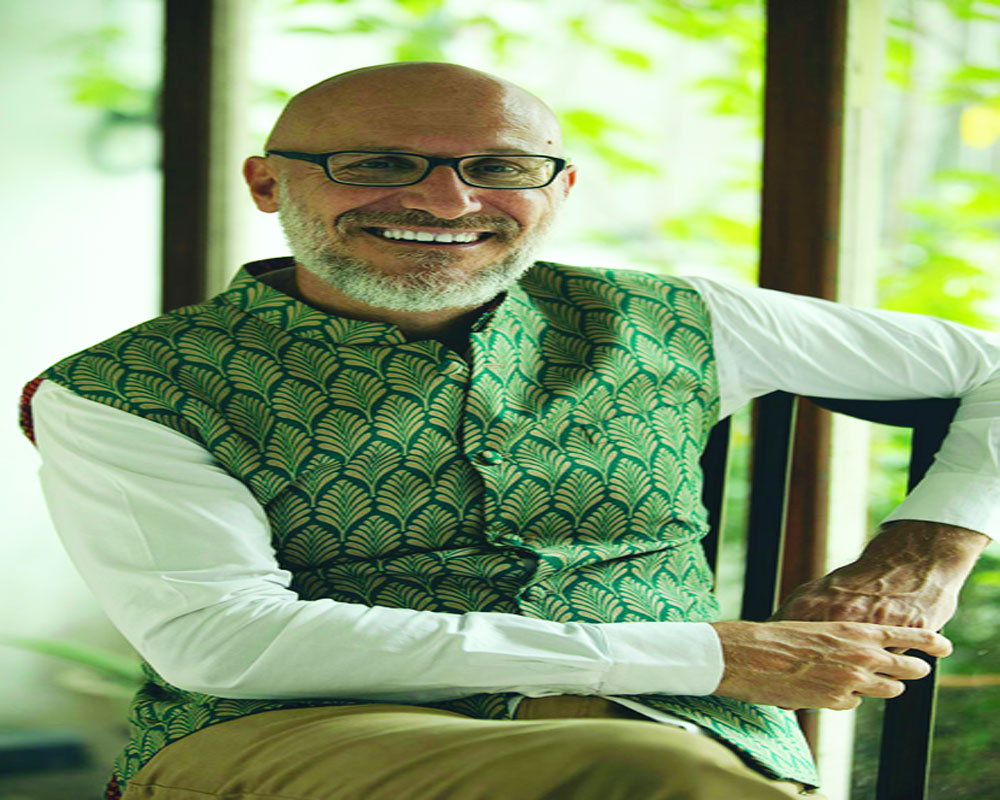SUPRIYA RAMESH speaks with STEFANO FUNARI, an upcycling entrepreneur about climate change, how much we are doing about it and his project where women from Mumbai slums are employed to make products
What exactly is climate change? What is causing it? How is it affecting the planet right now? Climate change refers to all the long-term changes in our climate, including Earth's rising surface temperature, sea level rise, extreme weather, and ocean acidification. The cause of current climate change is largely human activity like burning fossil fuels, natural gas, oil, and coal. Burning these materials releases greenhouse gases into Earth's atmosphere.
Global warming and climate change are two terms used interchangeably in colloquial language but global warming, which refers to the Earth's rising surface temperature, is just one of the manifestations of climate change.
Climate change is posing a serious threat to human health and putting our lives at risk. The effects of climate change cause less predictable weather patterns and increase the number of natural disasters that occur worldwide, such as hurricanes and wildfires. And it goes beyond that by altering where species live, how they interact, and the timing of biological events, which could fundamentally transform current ecosystems.
While everyone around the world feels the effects of climate change, the most vulnerable are people living in the poorest conditions. “We see this every day in Mumbai, a city which is becoming warmer and facing extreme and unpredictable rainfall,” Stefano Funari, an upcycling entrepreneur tells us.
What are we doing about it? “My opinion is that we are doing a lot but unfortunately not enough. This is a challenge of epochal proportions that calls for extraordinary measures from all the major stakeholders, Governments and large corporations in the first place. The long term risk of climate change is bigger than the one posed by COVID-19 but the resources invested are by far not at the same level. Financial interests are still absolutely dictating the agenda and we are running out of time,” he adds.
10 years ago, Funari left his job in Europe and moved across the world to the slums of Mumbai. Because he needed purpose. Working in technology was just not cutting it for him. He never looked back and understood from the very beginning that the only way not to be constantly lost in translation was to rely on a trusted group of local people. “The cultural gap is big and I need a constant dialogue with friends, partners and colleagues to read the situations and make my decisions. My biggest challenge has probably been to create this trusted group,” says Funari.
Funari is an upcycling entrepreneur. His ‘I was a Sari’ project is a Mumbai-meets-Milan fashion label, making bold accessories and ready to wear from pre-loved Indian saris. They works with women from marginalised communities so that they can carve out a better future for themselves. Women and men all over the world are now dressed in saris. Saris in different avatars-re-imagined as loungewear, shoes and bags. “Inspired by the work of Bangladeshi Nobel Laureate and the founder of Grameen Bank, Prof. Yunus, I was a Sari, is implementing a sustainable, eco-friendly model which focuses on a ‘triple bottom line’ - constantly analysing its social, environmental and financial impact and viability, and understanding the relationship each has with the others,” Funari explains.
Upcycling, also known as creative reuse, is the process of transforming by-products, waste materials, useless, or unwanted products into new materials or products perceived to be of greater quality, such as artistic value or environmental value.
“Upcycling can be compared to the Japanese technique of Wabi Sabi - turning something discarded into something valuable and desirable,” says Funari. He says that through such a process their goal is to reduce the impact on our planet. But in their case they have a second important goal too. In fact, they employ women from Mumbai slums to make products. And what’s beautiful is that these women get upcycled themselves as they transform their lives in so many ways. They start off as unskilled and unemployed and become talented artisans, the designers of their own future.
Talking about the environmental benefits of upcycling, Funari tells us, “In the textile field upcycling replaces the need to produce new fabric by using textile products that already exist. So we save the water and land used for growing materials like cotton. And we save oil and water used for making synthetic fibres like polyester. All this means a huge reduction in our carbon emissions.”
To create desirable and soulful products that empower people and respect our planet, and a platform for sustainable fashion brands that share social and environmental values, Funari set up a social business called 2nd Innings Handicrafts. “The very reason we exist is to empower women from not so privileged backgrounds to become the architects of their future. Business becomes more beautiful when women start thriving,” says Funari.
He says that there is a beautiful transformation that takes place – from beneficiaries, these women become artisans as they learn the skill and start transforming saris into contemporary fashion pieces. They work with pre-loved or post-consumer waste and not virgin materials, which helps us reduce our carbon footprint and save gallons of water. Their aim is to work with more women so that they can make a considerable social impact, while they continue to create beautiful products that minimise waste.


























